What is neocolonialism in geoscience and why you should care
Our past shapes the way we view and make sense of the world around us. The same is true for how we contextualise, envision and investigate questions in research - including within the geosciences.
Leading the final Human Evolution Research Institute (HERI) Winter Seminar, Dr Robyn Pickering digs into South Africa and Africa’s history with colonialism, and how modern neo-colonialism influences the way we talk about and carry out research on the continent.
What is neocolonialism?
Neo-colonialism is the economic and cultural dominance exerted by former colonial powers over less economically developed countries. This influence often manifests through the extraction of resources - whether natural or intellectual - by wealthier nations, leaving the less developed countries in a state of dependence.
In the context of geosciences, neo-colonialism surfaces through various research practices, particularly the unequal distribution of funding, data, and recognition.
One of its most common forms, however, is helicopter science, where researchers from affluent nations travel to low- and middle-income countries to carry out or engage in fieldwork, then collect information, such as rocks or fossils. They then travel back to their home counties to analyse the data and samples and publish the results, with no or little involvement from local researchers.
The practice is not only exploitative of local resources, but also local knowledge, with African researchers assisting in local logistics, dealing with language barriers and sharing their own research in the form of field sites and collections. In a neo-colonial research framework, this sharing is one sided, with the local researchers not being included in the aspects of the work taking place outside their countries - from the planning stages prior to the fieldwork, and then the data analysis and publication post fieldwork.
“The background to this modern form of neocolonialism is rooted in the history of colonialism, where the lasting legacy is institutionalised inequality and unequal relationships,” says Pickering who then asks. “What can we do as individuals, as well as Institutes and Universities?”
Africa is not a country
With 54 countries, eight different climatic zones, over 3,000 kms from one end to another, Africa is a vast landmass that is by nature incredibly heterogeneous, yet it gets lumped together and referred to a single homogenous entity of ‘Africa’, and its common to see references to ‘African climate’ or ‘the African fossil record’.
“This is based in that really quite racist colonial thinking that Africa is the heart of darkness and an unknowable single entity,” says Pickering.
She gives the example of a notable paper, published in 1980 and cited over 200 times regarding the holocene period palaeoclimate. While the paper is quite specific to field sites in the Sahara, the title blows this out to refer to the whole of Africa.
This is a kind of terra nullius, says Pickering. “Where Africa was just empty, uninhabited, and homogenous and just waiting for colonial invasion.”
Her suggestion was for researchers to be more careful about language. Specifically, she says to be wary of referring to ‘Africa’, and rather be geographically specific about the exact country or region where you’re visiting, studying or engaging.
“Grant Africa the dignity of heterogeneity,” Pickering says.
What about human evolution
Over 85 percent of the first authors of articles in the Journal of Human Evolution were from institutions in Europe or North America. This stat, presented by Pickering from work by HERI Co-director Rebecca Ackermann and its Lauren Schroeder, is countered by a staggering 4% of authors coming from both Africa and South America.
“Given the majority of what we know about the early human fossil record is from Africa, this is a stark contrast,” says Pickering.
To counter this, Pickering recommends geoscientists take considered steps for equitable participation at every stage of research including study design, data collection, data analysis and publication.
“Build meaningful and long term research collaborations, so that we can do better geoscience, which we all want,” she says.
Disrupting power dynamics
Professional societies are already showing interest in leading and influencing equitable research partnership, says pickering. She gives the example of the European Geosciences Union (EGU) as making steps to move the barometer.
Funding bodies like the European Research Council (ERC) are also showing interest in this shift, moving toward funding research demonstrating local capacity and existing research partnerships. And publications like PLOS and Copernicus Publications are bringing in new reporting where authors must declare authorship contributions and the nature of collaborations to publish in their journals.
Keeping pressure on professional bodies to acknowledge their power to disrupt the power dynamics in unequal partnerships is key to an equitable future.
What can you do
Ultimately, the goal is decolonisation or active resistance against colonial powers. Because science is embedded in the context and society in which it is done, the neocolonial dynamics we see now are a product of the colonial legacy,” Pickering says.
“It’s very important as a community of geoscientists that we grapple with how to decolonise this field.”
But this decolonisation requires self reflection, and acknowledgement of the individual lenses, biases, and privileges - or lack thereof - that researchers carry into their work.
Education is also essential, and Pickering names several books for learning more including Darwin's Hunch: Science, Race and the Search for Human Origins by Christa Kuljian, and Kathy Obear's book, But I'm not Racist!.
She also recommends online resources like The Racial Literacy Project and Africa is a Country.
By collectively working toward practices of decolonisation, Pickering says it is possible to build a fairer, more inclusive framework where the future of geoscience can evolve.
“We have the responsibility and the power to do this,” she says.
